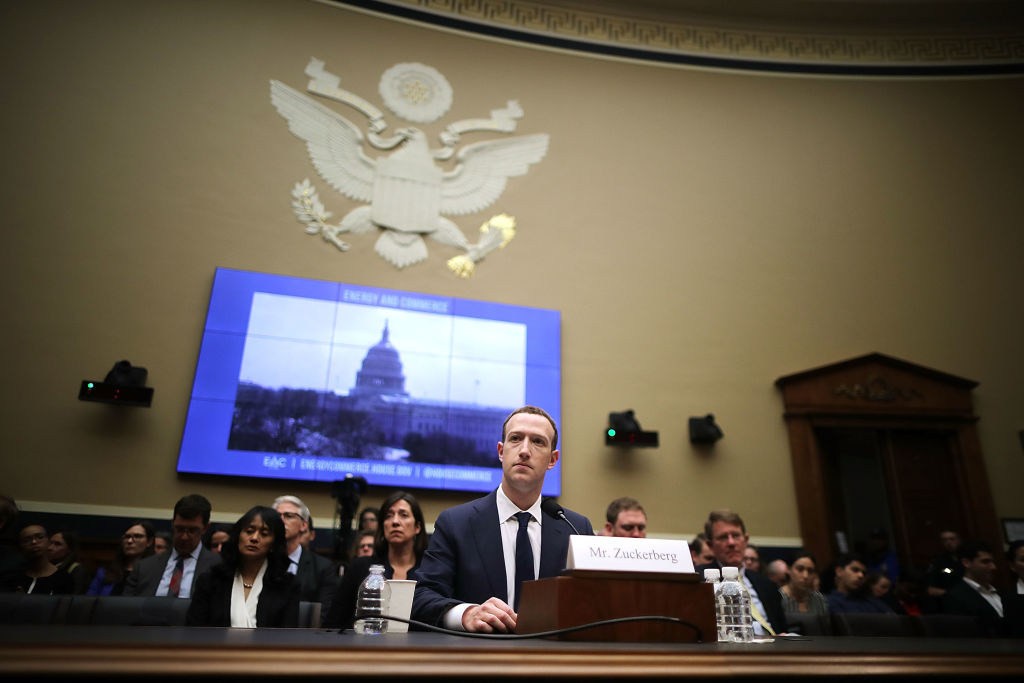Facebook failed to block searches for "Ku Klux Klan", despite having pledged to prevent users from searching for white-supremacist terms, an independent audit by a leading civil-rights researcher has found.
The research, published by Facebook today, follows a two-year review of the social media titan’s policies and practices. In a statement, chief operating officer Sheryl Sandberg said the report shows the company is "making progress on civil rights – but still [has] a long way to go".
Facebook commissioned the review in May 2018, a month after founder and chief executive Mark Zuckerberg faced a grilling by US politicians at a congressional hearing.
This month, nearly a thousand advertisers have pledged to boycott Facebook advertising due to its policy over hate speech and misinformation, while civil-rights groups have criticised the platform for allowing users to post racist content and other hate speech.
Frustration with Facebook at 'highest level' since company was founded
The 89-page report, written by civil-liberties expert Laura Murphy and civil-rights lawyer Megan Cacace, gives Facebook a lot of credit for putting into action various pledges made since 2018, concerning content moderation, advertising practices and the way its algorithms are built.
However, it warns that Facebook’s approach to civil rights remains "too reactive and piecemeal".
Murphy added: "Many in the civil-rights community have become disheartened, frustrated and angry after years of engagement, where they implored the company to do more to advance equality and fight discrimination, while also safeguarding free expression. As the final report is being issued, the frustration directed at Facebook from some quarters is at the highest level seen since the company was founded and certainly since the [audit] started in 2018."
The audit also details several instances in which Facebook is criticised for not going far enough in its proposed policy fixes, as well as failing to implement what it has promised.
For example, in 2019, Facebook announced that users who searched for white-supremacist terms would be redirected to the page for Life After Hate, a group that works to rehabilitate extremists. However, Murphy and Cacace found that this was, in practice, only happening "a fraction of the time – even when searches contained the words ‘Ku Klux Klan’".
"Facebook indicates that the redirection is controlled by the trigger words selected by Facebook in collaboration with Life After Hate and that 'Ku Klux Klan' is on the list and that should have triggered redirection," the report adds, but goes on to say that the auditors are "heartened" that Facebook has since begun an independent evaluation of its redirection programme.
Trump posts 'expose major hole in Facebook's understanding of civil rights'
While the auditors said they were encouraged by some steps Facebook is taking, they criticised the company for not expressly prohibiting references to white-nationalist or white-separatist ideology.
Ads containing false information about coronavirus have been generated and not captured by Facebook's algorithm, the report also warns, despite a "commendable" attempt by Facebook to proactively moderate misinformation about the disease. The report authors said Facebook should expand the number of staff devoted to this effort, commit to public education, strengthen its policies and apply them to other areas of misinformation, such as voter suppression.
The authors also drew attention to Facebook's stance over allowing US president Donald Trump to post content on Facebook in May that appeared to violate its content policies. Trump's racially charged suggestion that "when the looting starts, the shooting starts" was a catalyst for civil-rights groups in the US to call on advertisers to boycott Facebook in July.
The report noted: "Facebook’s decisions in May of 2020 to let stand three posts by president Trump have caused considerable alarm for the auditors and the civil-rights community. One post allowed the propagation of hate/violent speech and two facilitated voter suppression. In all three cases, Facebook asserted that the posts did not violate its community standards. The auditors vigorously made known our disagreement, as we believed that these posts clearly violated Facebook’s policies.
"These decisions exposed a major hole in Facebook’s understanding and application of civil rights. While these decisions were made ultimately at the highest level, we believe civil-rights expertise was not sought and applied to the degree it should have been, and the resulting decisions were devastating. Our fear was (and continues to be) that these decisions establish terrible precedent for others to emulate."
Sandberg, who was praised by the auditors for being the point person who gave them access to Facebook executives (including Zuckerberg), insisted that the report signalled the "beginning of the journey, not the end".
She said Facebook is going to hire a "civil-rights leader who will continue to push us on these issues internally", while Facebook bans threats that voting will result in law-enforcement consequences. Facebook has also committed to hiring 30% more people of colour in leadership positions and a $100m investment in small businesses owned by black people.
Sandberg continued: "There are no quick fixes to these issues – nor should there be… What has become increasingly clear is that we have a long way to go. As hard as it has been to have our shortcomings exposed by experts, it has undoubtedly been a really important process for our company. We would urge companies in our industry and beyond to do the same."
She said: "While we won’t make every change they call for, we will put more of their proposals into practice."











